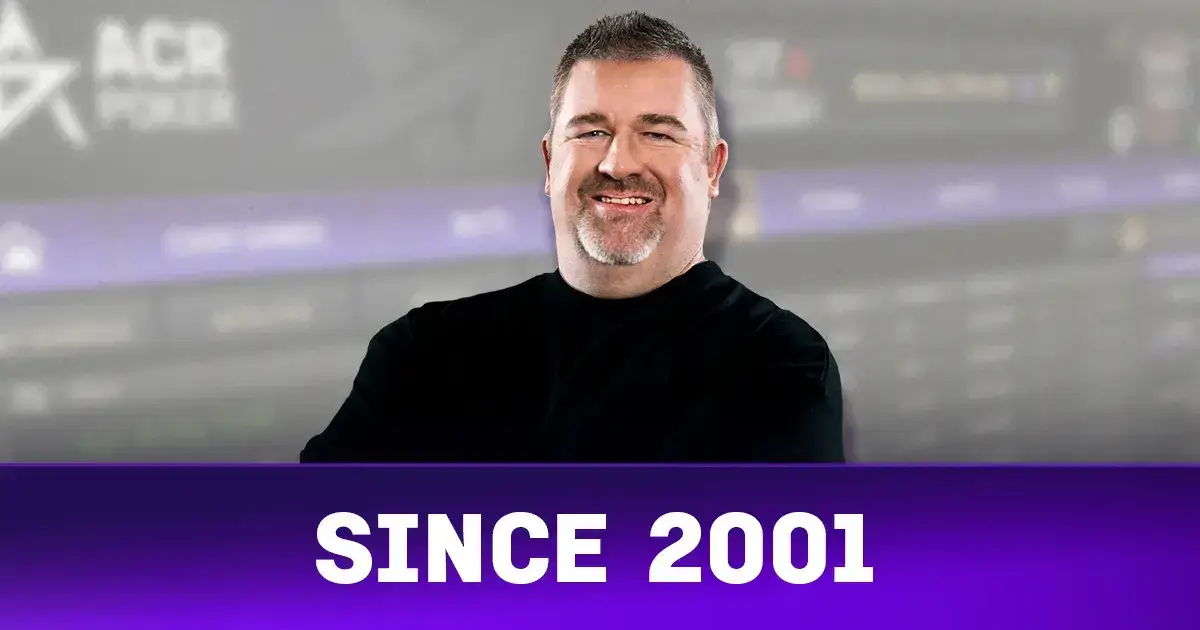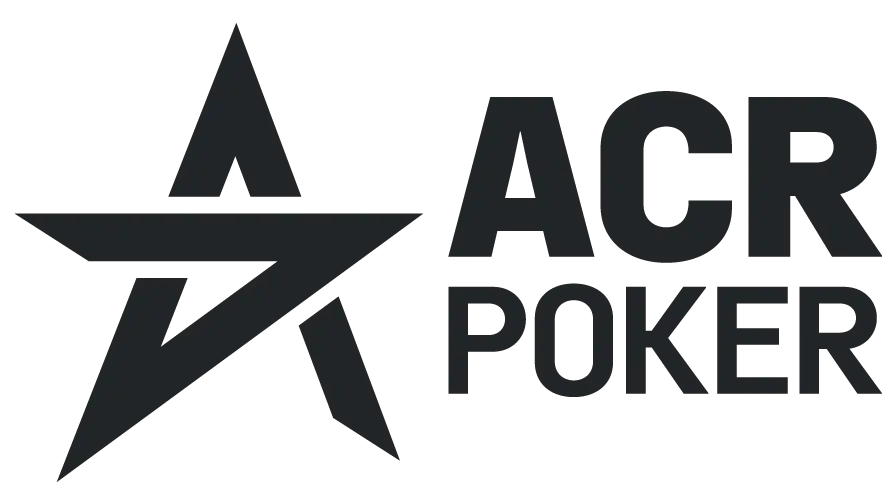A history of Online Poker
Free iRC Online Poker
Millions of hands of free poker are played on IRC (Internet Relay Chat).
Planet Poker launches
Randy Blumer’s Planet Poker deals the first real-money hand online.
Paradise Poker
Slicker software quickly propels Paradise to #1.
Online Poker Revenue hits $87m
Rapid growth—then the infamous “super-user” scandal.
Americas Cardroom Launches
America’s Cardroom goes live in 2001 & a strong community forms around it.
PartyPoker goes live
Party take over the US poker market harnessing large TV advertising budgets.
888 / Pacific Poker launches
One of the market’s longest-running rooms.
PokerStars & Moneymaker
Chris Moneymaker wins WSOP & by 2004, three times as many players enter the World Series.
SportingBet enter the game
SportingBet pay $340 million for ParadisePoker & the first public company take ownership of an online cardroom.
Online Poker Volume hits $2.4bn
Improvements in software, usability and accessibility drive huge revenue growth.
Unlawful Internet Gambling
A new act makes it unlawful for American’s to play online poker.
PokerStars tournament GROWTH
PokerStars becomes the biggest site, breaking a 20,000-player tourney record.
Zynga Poker on Facebook
Zynga Poker tops 10 million daily users on Facebook, pushing poker into casual gaming.
US BLACK FRIDAY BAN
“Black Friday” sees U.S. authorities seize PokerStars and Full Tilt domains.
Pokerstars negotiates DOJ DEAL
PokerStars acquires Full Tilt Poker in a DOJ-brokered $731 million settlement.
UltimatePoker – LEGAL online poker
UltimatePoker deals the first legal U.S. online hand in Nevada on April 30.
PokerStars Returns to the US
PokerStars returns to the U.S. with a regulated launch in New Jersey on March 21.
ACR’s Million DOLLAR SUNDAY
Americas Cardroom’s Million Dollar Sunday hits a $1.372 million prize pool.
GGPoker signs Daniel Negreanu
GGPoker signs Daniel Negreanu as ambassador, signaling the site’s rapid ascent.
GGPoker HOSTS WSOP ONLINE
GGPoker hosts the WSOP Online, distributing $147 million and 54 bracelets.
Americas Cardroom launches $10m VENOM TOURNAMENT
Americas Cardroom runs its inaugural $10 million-guaranteed Venom event.
WSOP main event has +10,000 competitors
WSOP keeps breaking records, this time with over 10,000 competing for a $93,399,900 prize pool.
SOFTWARE SCANDAL AT 2024 WSOP
Scandal erupts as a competitor utilises the help of a laptop-based poker solver.
Online Poker Security Tightens
Tech to detect poker assistant software is improved as Online Poker rooms combat growing poker tool accessibility.
VR/AR & Crypto Poker Delivers Massive Growth
With revenues expected to hit $237.5 billion by 2030, Online Poker has harnessed advancements in technology to deliver immersive, permissionless & provably fair poker experiences.
Online Poker’s 30-Year Sprint
The online game has come a long way since dial-up days playing free poker on Internet Relay Chat (IRC) since 1993. What happened next, with a single $3/$6 Texas Hold’em table on Planet Poker in January 1998—promoted by Mike “The Mad Genius” Caro—kicked off a digital gold rush that redefined gambling for a new millennium.
By the early 2000s Paradise Poker had leap-frogged the competition, setting fresh standards for software polish and player traffic while limit Hold’em, 7-Card Stud, and Omaha Hi/Lo ruled the lobby. U.S. grinders made up more than 90 percent of that traffic.
Big names smelled opportunity. PartyPoker, PokerStars, and later Full Tilt stormed the market—despite servers crashing under the weight of thousands of new users each night. Then came the “MoneyMaker Effect”: in 2003, Tennessee accountant Chris Moneymaker parlayed a $40 online satellite into a $2.5 million WSOP Main Event title and turned poker into prime-time TV. ESPN and the WPT cameras turned pros like Phil Ivey and Daniel Negreanu into household names, and No-Limit Hold’em became the new national pastime.
Congress pumped the brakes with the UIGEA of 2006, making it illegal for banks to process U.S. online-gaming payments. Many brands bailed; others found offshore work-arounds. But the player pool never disappeared—it simply adapted.
Enter Americas Cardroom (ACR)
While mainstream operators retreated, Americas Cardroom—part of the Winning Poker Network (est. 2001)—kept its virtual doors open to U.S. players alongside poker players from all over the world. Over the past decade America’s Cardroom has doubled-down on three pillars: huge guarantees, crypto banking, and rock-solid security.
- Monster prize pools. ACR’s flagship Venom series shattered its own record in May 2024 with a $12.6 million prize pool and a $1.8 million top payout.
- Crypto first poker. Long before most sites dipped a toe into Bitcoin, ACR was processing blockchain deposits. In 2025, more than 60 percent of all network transactions are crypto-based, covering Bitcoin, USDT, ETH, XRP, LTC and even DOGE, providing near-instant deposits and cash-outs.
- Player safety. From real-time HUD detection to dedicated game-integrity teams, ACR publishes its anti-cheating protocols and invites third-party audits—a stance that’s become a selling point for security-minded grinders.
Today’s Landscape
US: In 2025 the poker ecosystem in the USA is fractured: regulated state pools on one side, grey-market mobile clubs on the other, and a crypto-powered middle ground where brands fight for player trust. That climate puts a premium on clear reputations and fast, transparent banking—two boxes America’s Cardroom has kept checked for nearly 25 years.
Globally: The international online poker ecosystem has evolved much more rapidly than the US, with varying levels of regulation or lack of it. The advent of crypto friendly and crypto first platforms like Stake also signalled a new growth era for online poker players, who more frequently seek to manage their bankroll outside of the traditional payment rails. America’s Cardroom have been providing the world’s best poker product direct to international users at scale. Growing user-bases are enjoying our American style online poker in South America, Europe, Asia and Australasia and 2025 will see America’s Cardroom becoming even more accessible internationally.
Second to privacy, many users in 2025 are concerned about other players gaining an unfair advantage by using poker tooling and assistants to improve their gameplay. This remains one of the key focus areas for growth of trust in all all regions.
As the industry pushes deeper into mobile tech and digital currency, expect America’s Cardroom to keep leaning into what it already does best: giant guarantees, open doors for anyone, including U.S. players, and deposits that confirm in the time it takes to shuffle up and deal.

